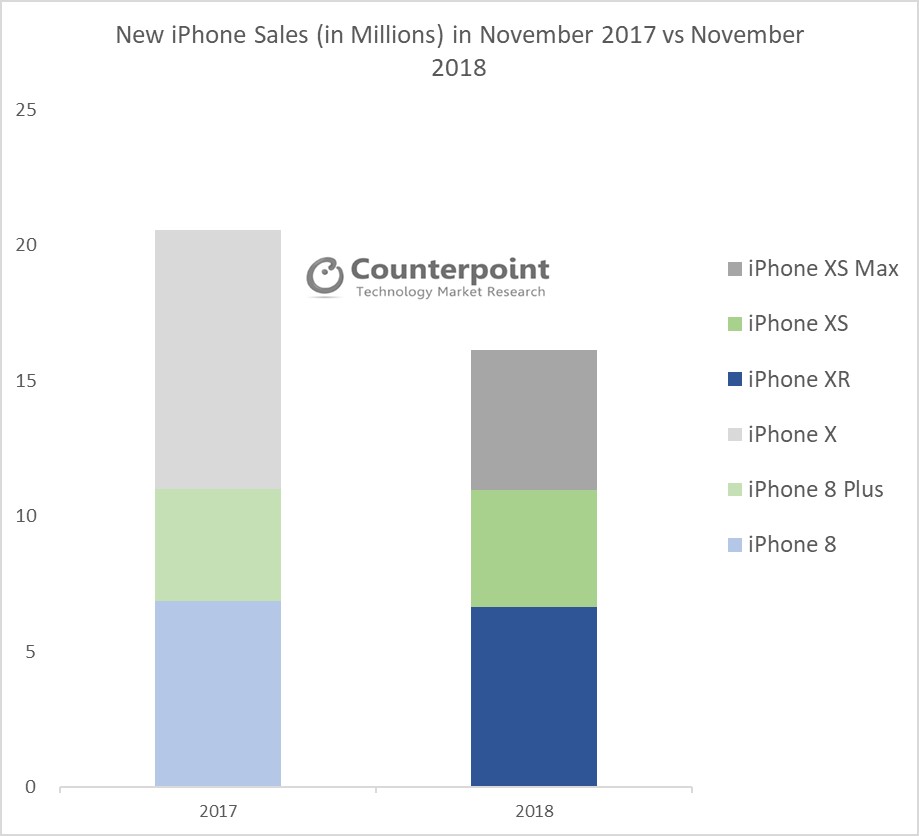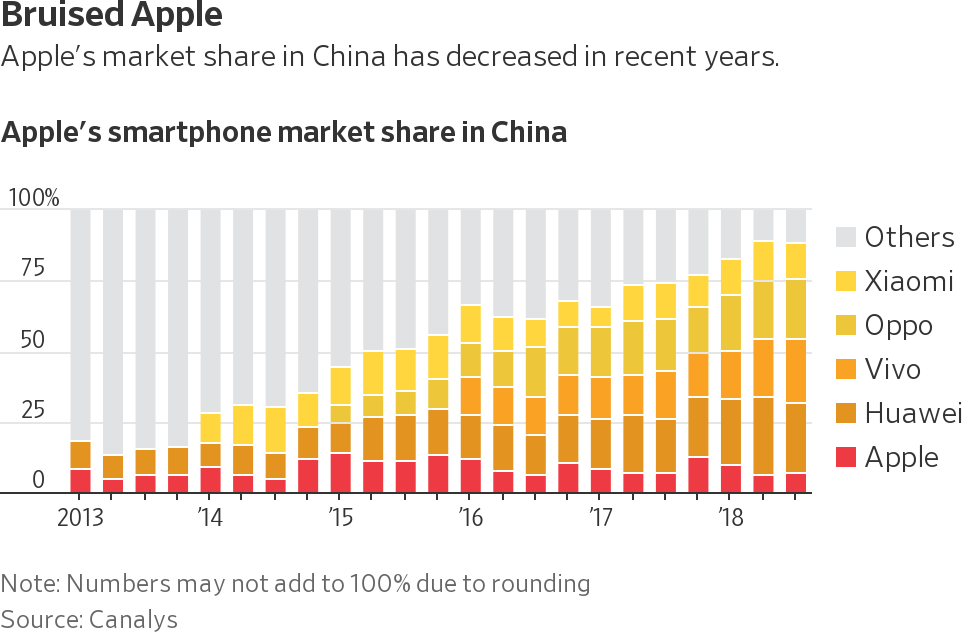That the sales of iPhones were expensive, that everyone already knows just lacked a number to associate with the fall. Now, thanks to Counterpoint Research, we already have it: based on the month of November, Ma's smartphones saw a very sharp drop in 20% in sales compared to the same period last year.

The chart above contains some interesting revelations. As we can see, the best-selling model in November 2017 by hand was the iPhone X, with almost 10 million units. J in November 2018, the best selling model was the iPhone XR, with about 6 million units. This information alone shows a change in consumer interest: in one period, the most expensive device was the best-selling; in another, the cheapest (among flagships).
The problem is that the iPhone XR has failed to attract consumer interest to make up for the jump in the price of more expensive iPhones. Compared to sales of the cheapest model last year (iPhone 8), the XR fell 5%, while the iPhone XS Max plummeted at the top of the table in relation to last year's most expensive model (precisely the iPhone X) a fall of brutal 46%.
China
Like Tim Cook, Counterpoint attributes part of the reason for the fall China. O Wall Street Journal brought some additional information about it: Chinese consumers are simply not showing interest in Ma’s new devices, not even the iPhone XR, which, with a tag equivalent to $ 950 in the country, brings features (like facial authentication, support for two chips, borderless screen and others) that can be found on much cheaper devices.

O WSJ quoted a survey by Canalys (above) that shows how Apple has lost market in China in recent years due to the emergence and growth of competitors such as Xiaomi, Vivo, Oppo and Huawei. Another analyst at UBS pointed out that Apple has made too many XR iPhones and is failing to make the units produced worthwhile.
Apple's problems in China, however, seem to go deeper than a simple graph showing numbers and trends. According to a report by BloombergChinese consumers in general are conducting an "informal boycott" of American companies, especially Apple, for a number of factors ranging from product prices to anti-American sentiment on account of the trade war between Washington and Beijing.
Citing a survey by Bank of America Merrill Lynch, the problem also extends to India and favors Asian companies, such as Xiaomi and Samsung apparently, consumers are more interested in buying new devices from these companies.
Fall in industry
It is true that the Chinese smartphone market as a whole is facing problems: the Reuters affirmed that the sale of mobile devices in the country of the wall suffered a fall between 12% and 15.5% over the last year, could fall a little more in 2019 and causing the global smartphone segment as a whole to contract in about 1 % China, after all, the largest market on the planet in the sector.
The scenario is clear: in a world where it is increasingly difficult to justify changing a smartphone every two years, consumers are getting more with their devices or looking for cheaper alternatives to save China. Clear example of this trend and Apple seems to have been one of the most affected companies. It is not the only one, however: Samsung does not seem to be on the best sheets in the middle of this situation.
Samsung also suffers
The South Korean giant, as well as Apple, issued a statement reducing its revenue expectations for the fourth quarter of 2018, a drop of about 12%, according to the company. The main reason attributed to the fall is in a reduced demand for memory chips (perhaps due to the retraction of the smartphone market in China), but the sale of their own mobile devices is also a determining factor or, in the words of the company itself, “a competition in the smartphone market ”.
This is Samsung's first drop in revenue in two years and more details will be revealed about the story when the company releases its financial results in January.
In other words: as much as the situation is quite bleak for Apple, it must be considered that the market as a whole is suffering from phenomena that are difficult to anticipate, especially there on the other side of the world. Jim Dalrymple, from The Loop, opined that the problem is not in the iPhone, but in China; only a recovery in the market per year would put smartphone makers on track again.
· • ·
Well, if the problem is really in China, I can't say yet. The fact that Apple is in bad shape and will have to review its price and release strategy if it wants to see a recovery, who knows, even taking advantage of the vacuum left by competitors with the scenario. And that is good for all of us, without a doubt.
via Cult of Mac, Phone Arena, MacRumors
